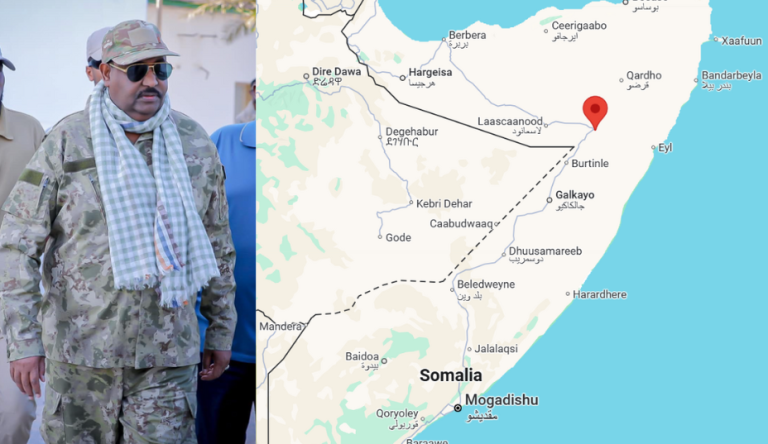Puntland’s recent success in combatting the Islamic State (IS) has drawn increasing international attention, shifting the focus from Somalia’s federal government to regional administrations that have demonstrated stronger governance and security measures. Puntland, a semi-autonomous State of Somalia, is currently led by President Saed Abdullahi Deni who is praised for showing strong political will and being proactive in engaging local communities to fight against extremism.
While the Somali government, under President Hassan Sheikh Mohamud, has long received substantial foreign aid, its struggles with internal conflicts and militant threats have raised doubts about its effectiveness. Puntland, on the other hand, has shown greater commitment to securing its territory, which has made it a more reliable partner in counterterrorism efforts.
For years, international donors have funneled resources into Somalia’s federal government with limited results. Despite these investments, Mogadishu has failed to exert control over large parts of the country, leaving room for extremist groups like IS and al-Shabaab to operate freely. Puntland’s more organized and decisive approach, which has led to the recapture of significant IS-held territory, has demonstrated that regional governments may be better suited to tackle security threats.
Meanwhile, criticism is mounting over the priorities of Somalia President Hassan Sheikh Mohamud, who has spent millions on diplomatic trips rather than focusing on Somalia’s domestic challenges. His recent visit to Azerbaijan, a country with minimal strategic ties to Somalia, has fueled skepticism about the government’s commitment to addressing the ongoing security crisis. Many argue that these diplomatic expenditures do little to improve the situation at home, where extremist groups continue to destabilize the country.
Puntland’s security forces, supported by AFRICOM airstrikes and logistical backing from the UAE, have dealt a heavy blow to IS, killing over 150 militants and reclaiming nearly 60% of previously occupied land. The success of Puntland’s counterterrorism efforts is not just a governmental initiative but a community-driven movement, with local militias actively participating in the fight against IS. This unity has significantly weakened the militant group, which is now isolated and struggling to survive.
Political divisions within Somalia have further complicated the federal government’s effectiveness. Puntland, along with other regional states like Jubaland and Somaliland, has distanced itself from Mogadishu, operating with a level of independence that allows for more localized solutions to security threats. This fragmentation has made it difficult for the federal government to enforce authority, further diminishing its role in national security efforts.
Given Puntland’s achievements, international partners are now considering a shift in their strategy, placing more emphasis on regional governments that have demonstrated tangible results in combating terrorism. This could lead to increased aid and support for Puntland and other autonomous regions, while the federal government’s role in security matters may diminish further if it fails to deliver meaningful change.
Ultimately, Puntland’s success against IS presents a compelling case for localized solutions to Somalia’s long-standing security problems. While the federal government continues to struggle with internal challenges, Puntland’s ability to secure its territory and push back against extremism highlights the potential of regional governments to take the lead in stabilizing the country. This shift in focus may redefine Somalia’s international partnerships and set a new precedent for counterterrorism efforts in the region.
The confidence in Puntland’s successes forms the foundation for the anticipation of the complete wipeout of Islamic State by March 2025, a feat that would further solidify Puntland’s position as a key player in the fight against terrorism in Somalia.

